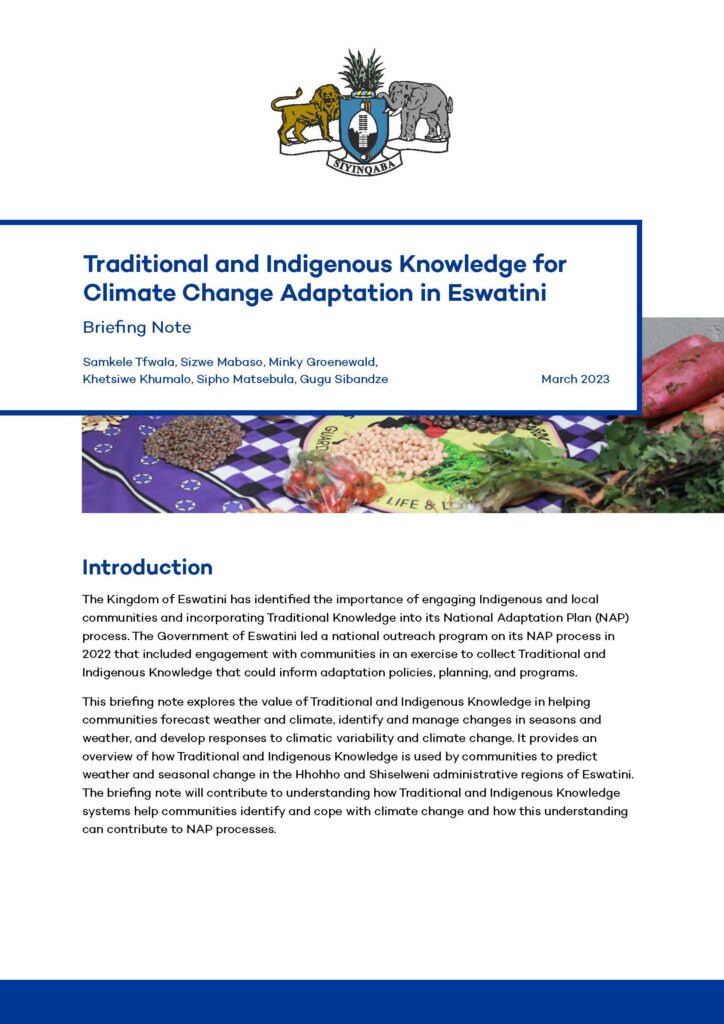
Traditional and Indigenous Knowledge for Climate Change Adaptation in Eswatini
The Kingdom of Eswatini has identified the importance of engaging Indigenous and local communities and incorporating Traditional Knowledge into its National Adaptation Plan (NAP) process. The Government of Eswatini led a national outreach program on its NAP process in 2022 that included engagement with communities in an exercise to collect Traditional and Indigenous Knowledge that could inform adaptation policies, planning, and programs.
This briefing note explores the value of Traditional and Indigenous Knowledge in helping communities forecast weather and climate, identify and manage changes in seasons and weather, and develop responses to climatic variability and climate change. It aims to contribute to understanding how Traditional and Indigenous Knowledge systems help communities identify and cope with climate change and how this understanding can contribute to NAP processes.
Related content
- Blog | Eswatini Outreach Programme: Strengthening Adaptation and Traditional Knowledge Systems to Enhance Resilience
- Briefing note | Eswatini Environment Fund: Funding climate change adaptation and biodiversity actions at the local level
- A Pathway to the Adaptation Communication (ADCOM): Lessons from the Kingdom of Eswatini
- The Kingdom of Eswatini’s Initial Adaptation Communication to the UNFCCC
Publisher: Government of Eswatini